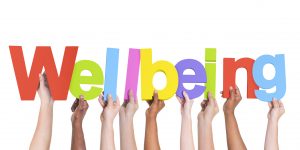Emotional Well-Being and Contentment
Contentment concerns the ability to know your own mind, body and soul. Pragmatically this means to reflect on our feelings, and to recognise, communicate, respond to, and understand feelings.
We all have a sense of feeling that we are born with and we develop an understanding of ourselves emotionally through our primary relationships we had with our early family members, neighbours, teachers, church members, and wider cultural influencers like the internet and social media.
As we grow up we make choices about how to belong. Collectively our choices with different groups of people and environments may help us grow and reach our potential and may also hold us back. What worked when we were a child no longer works as an adult.
Some of our early learned ways might be to suppress our feelings and to attribute negative thinking to a feeling. Your parents might have frowned upon you crying or getting angry, or been pleased with you when you were able to ‘put a brave face on’ or ‘be a man!’. This can negatively distort our sense of self and others and be life limiting.
These ways of adapting to early environments are now wired into how you react to everyday life. So, when you successfully suppress your anger or sadness or fear over and over again, it can lead to them bubbling up as anxiety and ultimately shutting down completely as depression.
Being in charge of your own emotional well-being is a big predictor of success in one’s work, rest, play and relationships.
People can use their feeling sense to improve mental health, reach goals, and develop fulfilling relationships. According to a 2018 report of North Americans, people with a high EQ (a measure of emotional awareness) are 8 times as likely to have a high quality of life as those with lower scores. A higher EQ can improve lifelong physical and mental health even more than academic ability.
Research also suggests EQ is more important than IQ for succeeding in the workplace. Employees with high EQ are more likely to display leadership skills and high business performance. Managers with a high EQ are more likely to retain employees long-term.
Emotional and Personal Development
A negative and distorted sense of our feelings and those of others can result in life difficulties:
- Forming healthy friendships and relationships.
- Working as a team in school or on a job.
- Communicating their needs and desires in a productive manner.
- Recognizing and regulating their own emotions.
- Avoiding regretful actions or words spoken in anger.
These difficulties can cause a person to become anxious, anguished, isolated and lonely. Isolation, in turn, can prevent a person from developing social skills on their own.
A therapeutic relationship helps by identifying relational gaps through curiosity, empathy and challenge. It is a process of grieving, healing and new emotionally supportive choices.
Like any other skill, emotional intelligence can be improved through effort and practice.
A therapeutic relationship will help with:
- Self-awareness: Recognising your moods and emotions and their effect on others.
- Self-regulation: Mindful reflection to emotionally self-sooth and head-off moods or emotions from causing self-limiting impulsive behaviour.
- Internal motivation: Knowing your own mind, body and soul, in what limits you and what helps you, is your navigation system to emotional health. Using this trusted sense to drive your choices is grounded, stable and adult and is based in our optimism, curiosity, purpose, and values.
- Empathy: Understanding the feelings and emotions of others and using this knowledge to respond to people based on their emotional state. Understanding engages whilst disagreement is polarising and isolating.
- Social skills: Using one’s emotional sense to establish strong relationships and belong within groups.
If you would like to find out more please contact me on 07880 668651 or email:
fi***@si**************.uk
BACP Accredited & registered therapist, based in Bowdon, offering counselling and psychotherapy services in South Manchester covering Hale, Wilmslow, Altrincham, Timperley, Knutsford and Cheshire areas.



